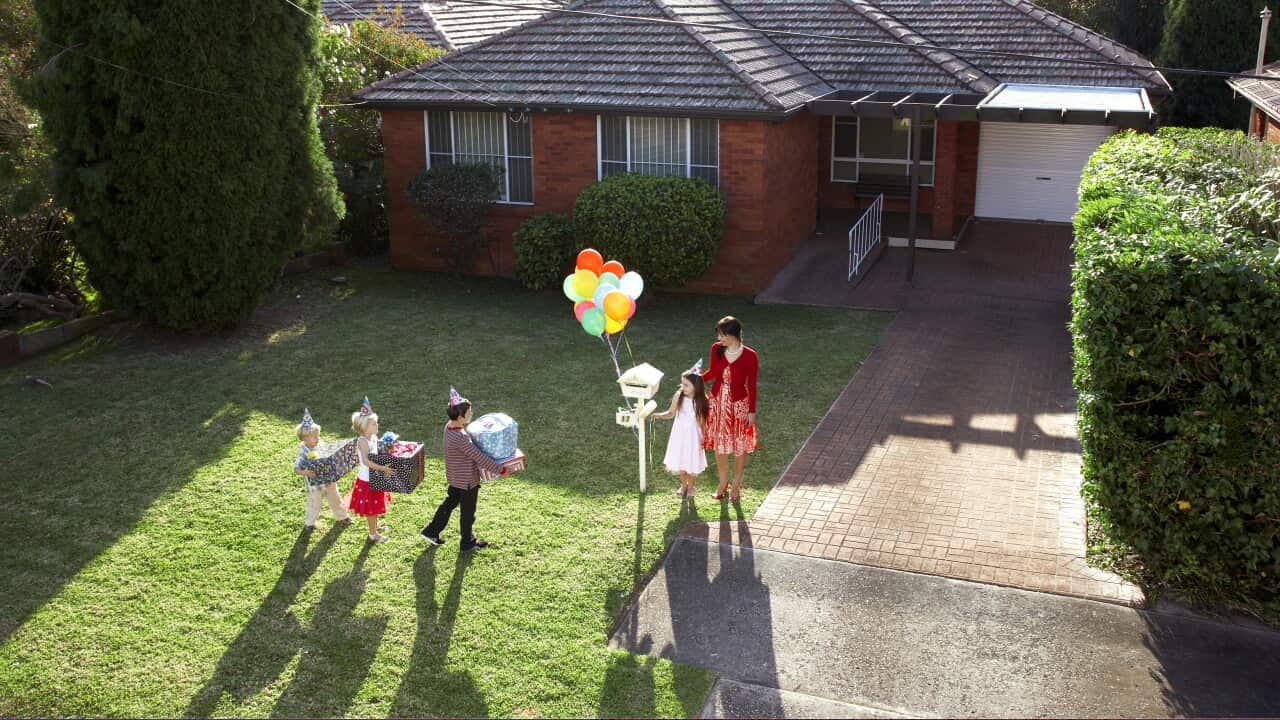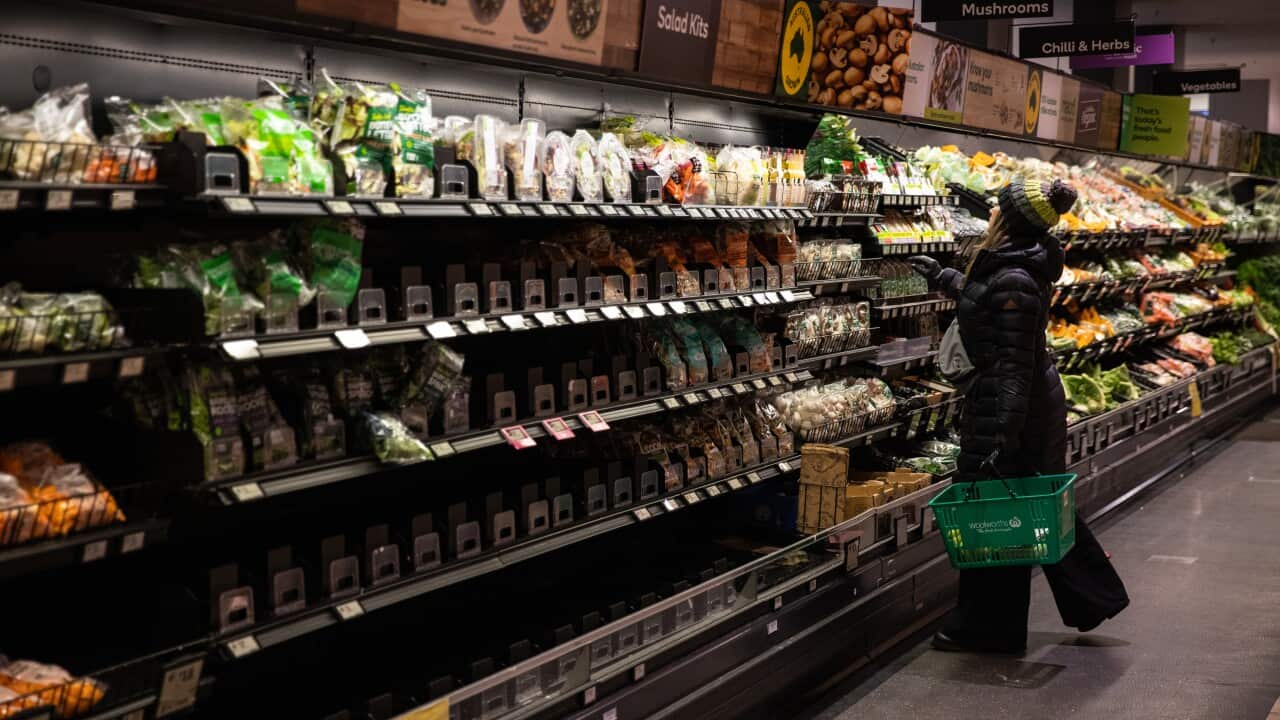Key Points
- Expectations around gift giving at birthday parties are high during primary school years.
- Some families are reportedly stretching their budgets to meet gift expectations.
- Noosa mother Kylie Travers says avoiding last-minute present shopping by planning ahead saves her money.
Those whose job it is to assist people in financial stress are used to hearing about difficult situations, but it was the mention of children's birthday parties that brought home the reality of the challenges families are facing due to the increased cost of living for Major David Collinson.
Speaking to SBS News, the member of the Salvation Army recalled a recent conversation with a mother who told him she "dreaded" the thought of her children bringing home a birthday party invite.
When Mr Collinson asked the woman why that was, she told him, "Well, I can't afford the $30 or $40 on a present,” he said.
The Salvation Army provides support to those in financial stress and can assist with necessities such as utility bills and groceries.

Major David Collinson sees the impact of the increased cost of living on Australian families as part of his work with the Salvation Army. Source: Supplied
In other situations, families may feel obliged to use part of their stretched budget on a present or feel embarrassed that their gift was not worth as much as other gifts given.
Inflation has risen by 7 per cent in the past year in Australia and the cost of everything from gas to has risen.
The high cost of a birthday presence
Noosa mother Kylie Travers understands the financial burden of kids birthday parties; she has four children at home plus a stepdaughter.
She said a primary school-aged child could be invited to anywhere between 10 to 20 parties a year and expectations about how much should be spent on a gift ranged from anywhere between $10 to $100.
“When they are in primary school, it’s definitely when it’s most full on,” Ms Travers said.
She said the general value of gifts given at children’s parties depended on where people lived and the families in the area.
Ms Travers owns the Thrifty Issue, a website dedicated to helping families save money. She said that, while today her family was now financially comfortable, this wasn't always the case.
“Previously, I was a homeless single mum on Centrelink,” she said.
Ms Travers' family has relocated a number of times and she said that, when they lived in inner-city Melbourne, it was not unusual for people to give presents worth $50 to $100. However, when living in Western Sydney, the value was closer to $10, while in Noosa, where they live now, it's somewhere between the two.
Rethinking how we gift
Ms Travers said she would hate to think that anyone would use a credit card and add to their debt in order to buy a present for any of her children’s parties.

Kylie Travers has hosted plenty of birthday parties for her children and, while she says an invite should not come with the expectation that guests have to spend a significant amount on a present, she knows there are often expectations around gift giving. Source: Supplied
"I think parents in general, people need to be discussing these sorts of things with each other and being a bit more realistic with finances because I think most people in the country are struggling with the cost of living having skyrocketed this year, so now is the perfect time to have those conversations,” Ms Travers said.
She keeps a box of gifts in her home that she fills with items she buys at marked-down clearance-sale prices, in order to keep the cost of attending parties down.
She then puts together a bundle of gifts that would normally have been worth between $50 and $100, but only cost her about $10.
Ms Travers also encourages her children to look for specials so they have an understanding about being thrifty.
"It's sort of just knowing when and where to look and just keep[ing] your eyes open for those sorts of opportunities,” she said.
“I picked up a tin of cookies just yesterday that should have been $15, for $1.50, nothing on it indicated that it was a Valentine’s gift, but the store had bought it in for Valentine's so they were clearing it and it's got until next year on the use-by date.”
Mrs Travers said she was not embarrassed about letting people know she didn’t pay full price, as she didn’t want to contribute to heightened expectations.
Her family has also hosted what is known as "fiver parties" for her children, where guests are asked not to buy gifts and instead give $5 each, which the children can then either spend on one big gift or on a number of smaller things they really want.
Mrs Travers' kids generally don’t give birthday cards with gifts, which provides an instant saving, she said.
Instead, they will sometimes do a drawing for the person celebrating their birthday, and she knows of others who've held celebrations and asked for books, with a note written inside, instead of a card.
“Often cards would go straight in the recycling and the kids don't really care about them, but also my kids are half Islander and in their culture you don’t really give cards – it's not done,” she said.



